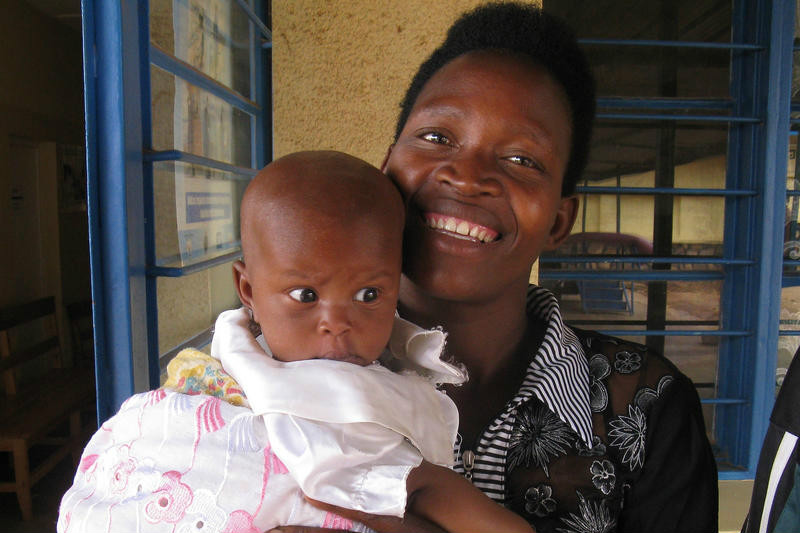When a family planning campaign in Rwanda was successful, demand for family planning (FP) services in the targeted district increased so much that its health center could no longer attend to each request. To accommodate the overflow, a second health center began providing additional FP services.
The Behavior Change and Social Marketing (BCSM) project, supported by the Johns Hopkins Bloomberg School of Public Health Center for Communication Programs (JHU•CCP) and community-based partners, made this possible. Indeed, thanks to BCSM’s mobilization efforts, the contraceptive prevalence rate in the area jumped from 17.5 percent to 39.5 percent in just two years.
Christine Uwanyirigira, mother of two children and proud user of FP beamed as she expressed her gratitude. “I am encouraged by my husband to use the FP methods because this gives us enough time for family and economic development,” she explained.
BCSM promoted health-seeking behaviors among Rwandans and built the capacity of Rwandan institutions to implement programs around HIV/AIDS, malaria, reproductive health and child survival at community level, working through leaders and community members.
Thanks to the BCSM intervention, Rwandan religious leaders in targeted districts, formerly known to be apprehensive, became FP advocates. One pastor explained, “BCSM led to the rise of socio-economic levels and improved standards of living for families that have already embraced behavior change towards modern FP.”
This change in attitude toward FP is also evident in the many health centers supported by the Catholic Church. While the health centers do not allow their staff to distribute birth control on-site, they now allow their staff to train in modern FP methods and administer birth control at a nearby health clinic.
Although it was challenging, BCSM made this change possible with a sensitive approach involving advocacy, collaboration with local authorities, and empowering groups of community members.
BCSM’s child survival and malaria prevention programs also showed positive results. One health center lauded BCSM for the decline in cases of diarrhea, claiming that it used to see five cases of diarrhea each month and now many months can pass without any cases of diarrhea at the center. Similarly, the health center used to treat an average of 300 cases of malaria each month, but thanks to BCSM’s efforts to educate the community about the benefits of using mosquito nets, the center was treating only 20 cases of malaria each month at the end of the five-year project.
With efforts rooted in the community, Rwandans were empowered and inspired by BCSM’s impact. Local authorities believe that the project was not only sustainable but also replicable.
“I recognize this great contribution of BCSM and wish them a divine blessing,” continued Mrs. Uwaniyirigira.
BCSM was a five-year cooperative agreement funded by USAID, led by Population Services International (PSI) and supported by JHU∙CCP. JHU∙CCP led BCC capacity building efforts for the project. Activities included training, supervising and mentoring field officers and community partners, developing tools and BCC materials and helping Rwandan institutions build technical skills to create sustainable programs.


